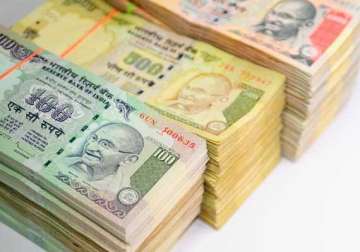New Delhi, Aug 11: Top finance ministry officials worked overtime on the weekend to firm up additional steps to arrest the sliding value of the rupee and contain the current account deficit (CAD).
Continuing the discussions initiated by Finance Minister P Chidambaram, Economic Affairs Secretary Arvind Mayaram held a meeting of senior officials, including Additional Secretary (Capital Markets) KP Krishnan and top tax officials.
Some announcements are likely to be made by the ministry on Monday, either in Parliament or outside, sources said.
The steps being contemplated by the ministry to check the rupee fall and boost forex flows include further relaxation of external commercial borrowing (ECB) norms for state-owned companies, curbs on import of non-essential goods and encouragement to exports.
Mayaram, after a meeting of the Financial Stability and Development Council in Mumbai earlier this week, had said, “You should wait till weekend. The Finance Minister will be talking about this (outcome of the meeting) later.” Chidambaram held meetings on Friday with senior officials, including Commerce Secretary SR Rao, and is believed to have discussed measures to check the import of non-essential goods.
The minister had earlier said the government would be looking at some compression in non-oil and non-gold imports, especially of non-essential goods. He had cited the examples of coal and electronic hardware, adding that the officials would be working out a list of imported items that could be reduced.
Chidambaram had also said blue chip public sector undertakings (PSUs) could be encouraged to raise funds overseas.
After the announcement, heads of several PSUs met Finance Ministry officials, pleading for relaxation of ECB norms.
The new measures being considered by the ministry are in addition to steps taken recently by the Reserve Bank of India (RBI) to tighten liquidity and curb volatility in the rupee, which touched a record intra-day low of 61.80 to the dollar on August 6.
The RBI recently announced it would auction Rs 22,000 crore of bonds every Monday to suck out liquidity and check speculation in the forex market.
The central bank had earlier raised the marginal standing facility rate to make borrowing from the RBI expensive for banks. The RBI and the government have also taken steps to curb imports of gold.
The current account deficit, which occurs when the total imports of goods, services and transfers exceed exports, had hit a record high of 4.8 per cent of GDP in fiscal 2012-13 as rising purchases of oil and gold from overseas widened the trade gap.
A widening CAD also weighs heavily on the local currency.
Latest Business News
